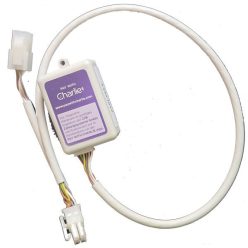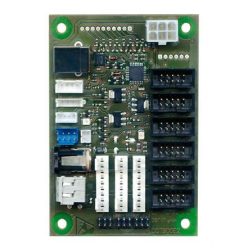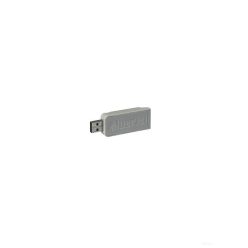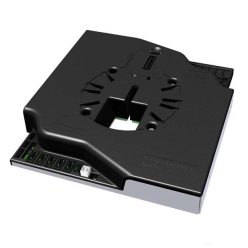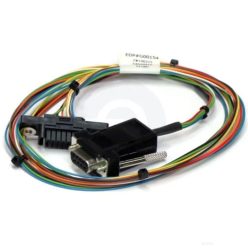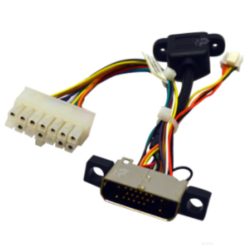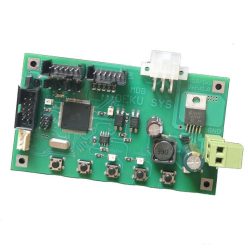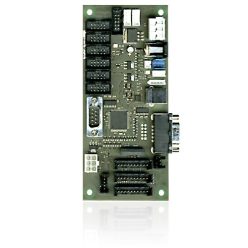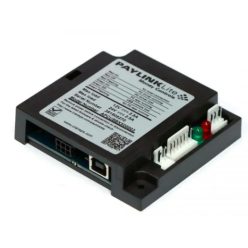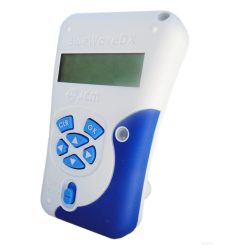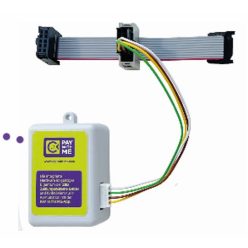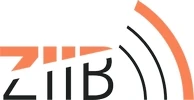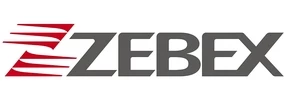Interface modules for reliable communication between payment devices and kiosk controllers
This category offers interface modules that bridge payment devices and peripherals with kiosk PCs or controllers. You will find USB–ccTalk interface boards, MDB–Bluetooth modules, PULSE interfaces, USB–TTL converters and dedicated PC interface cards. With these modules you can easily connect coin and banknote acceptors, hopper units, cashless payment terminals and other peripherals to your own application. The devices support multiple communication standards, provide galvanic isolation, status LEDs and configurable inputs, and are designed for 24/7 industrial operation, so cabling remains clear and integration becomes faster and more predictable.
Interface modules for kiosks, payment terminals and industrial systems
In kiosk and payment applications, interface modules form the bridge between the host PC or controller and a wide range of peripherals. Typical devices include coin and banknote acceptors, hoppers, cashless payment terminals, card readers and various motorised mechanisms. This category covers USB–ccTalk interface boards, PULSE interfaces, MDB bus adapters, USB–TTL converters, USB–serial (RS‑232/RS‑485) adapters and dedicated PC interface cards. With these products you can build a unified, well documented communication layer so that your kiosk software can handle all connected payment and control modules in a consistent way.
Among the typical product types you will find USB–ccTalk interface boards for coin and banknote devices, multi port ccTalk/MDB/RS‑232 hubs, PULSE/Bluetooth interface modules that add cashless payment to impulse based machines, compact MDB interface PCBs, USB–TTL converter dongles and embedded PC interface cards. Such modules are used in parking and ticketing kiosks, parcel lockers, vending and washing machines, arcade and amusement machines and many other unattended installations where several payment methods and peripherals must be integrated into a single system.
Communication standards, integration and applications
The key role of an interface module is to make different communication standards easy to manage from the host side. ccTalk based modules handle serial communication with coin and banknote devices and hoppers, while MDB interface boards are suited to vending style payment systems used in self checkout, snack and drink machines or payment columns. PULSE interfaces connect to simple impulse driven machines, and USB–serial adapters expose classic RS‑232/RS‑485 lines to modern PCs that no longer provide native serial ports.
By using dedicated interface modules you gain additional benefits such as galvanic isolation, surge protection, clearly labelled connectors, status LEDs and often firmware support for typical payment flows. This reduces the risk of wiring errors and communication issues, and makes it easier to update or replace peripherals later without changing the host application. Well chosen interface hardware also helps you standardise on a single cabling concept across multiple kiosk models and locations.
Quality, local technical support and operational aspects
Because interface modules sit at the centre of communication between your kiosk and its peripherals, their quality and availability have a direct impact on system uptime. It is therefore worth choosing industrial grade devices backed by local technical expertise and a solid logistics concept.
- local technical support in Hungary to help you select the right USB–ccTalk, MDB, PULSE or USB–serial interface modules for your payment devices and controllers;
- regular maintenance including inspection of connectors, cables, mounting hardware, LEDs and fixing screws to minimise the risk of contact problems or intermittent communication faults;
- respecting the recommended operating conditions such as ambient temperature, humidity and EMC environment, especially for outdoor or semi outdoor kiosks where interference and temperature swings are higher;
- maintaining stock of critical interface boards and arranging scheduled deliveries for rollouts or retrofit projects across multiple locations;
- flexible logistics with multiple shipping options, customs handling and freight forwarding when modules must be delivered to several countries or customer sites;
- commercial flexibility including post payment terms, invoicing in foreign currencies and project based pricing so that you can plan total lifecycle cost instead of focusing only on unit price.
FAQ – interface modules in kiosk projects
- When should you use a dedicated interface module for payment devices?
Dedicated boards make sense whenever several coin and banknote devices, hoppers and cashless modules must be connected to the same host. A single interface hub simplifies cabling, unifies communication and often provides diagnostics that help during commissioning. - How does an industrial USB–ccTalk interface differ from a simple USB–serial adapter?
An industrial interface is designed specifically for payment devices, supports ccTalk or MDB protocols, usually offers multiple connectors, status LEDs and galvanic isolation and is mechanically suited for mounting inside kiosks or cabinets. - How can you reduce communication errors when using interface modules?
Use the recommended cable types and lengths, follow grounding and shielding guidelines, respect topology limits and ensure proper mechanical fixation and ventilation of the interface board. Good EMC practice is just as important as correct protocol handling. - Why is local technical support important when selecting interface hardware?
Local experts know the payment devices and configurations commonly used in your region and can recommend interface solutions that match both electrical and mechanical requirements, while also ensuring that spare parts and replacements are available quickly.

